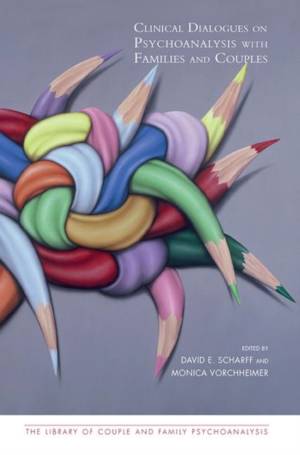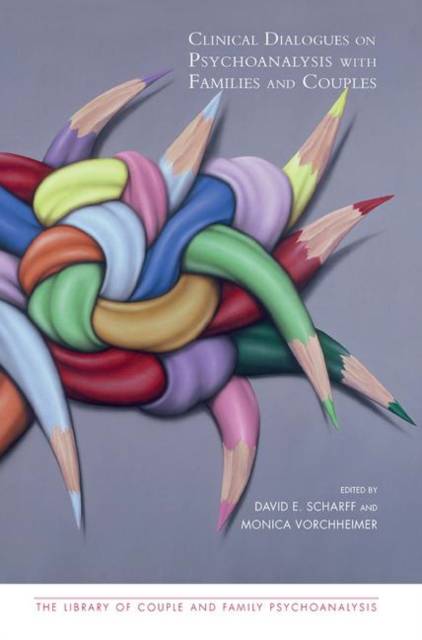
- Afhalen na 1 uur in een winkel met voorraad
- Gratis thuislevering in België vanaf € 30
- Ruim aanbod met 7 miljoen producten
- Afhalen na 1 uur in een winkel met voorraad
- Gratis thuislevering in België vanaf € 30
- Ruim aanbod met 7 miljoen producten
Zoeken
Clinical Dialogues on Psychoanalysis with Families and Couples
€ 182,45
+ 364 punten
Omschrijving
This book widens the scope of clinical and theoretical contributions on Couple and Family Psychoanalysis by collecting case presentations and discussions by analysts from Europe, North America, Latin America, China and Australia. The rich cross-fertilization across countries and analytic orientations stimulates cross-cultural thinking and deepens clinical exploration. In English language psychoanalysis, focus on object relations theory emphasizes internalization of early family figures in construction of the psyche, and their projective influence on others through continuing family interaction. Theories of the link and of the field explored in South America and Europe, shift focus from the internal life of the individual onto the influence of the other, and the way superordinate unconscious patterns introjected from previous generations are recreated by interacting members of families and couples, and in turn contribute to the continuing psychic evolution of individuals. Work in other cultures, such as China, brings us face to face with deep structures of thought and family organization that challenge Western psychoanalytic assumptions, even as those families are in rapid change themselves.
Specificaties
Betrokkenen
- Uitgeverij:
Inhoud
- Aantal bladzijden:
- 254
- Taal:
- Engels
- Reeks:
Eigenschappen
- Productcode (EAN):
- 9780367104023
- Verschijningsdatum:
- 14/06/2019
- Uitvoering:
- Hardcover
- Formaat:
- Genaaid
- Afmetingen:
- 152 mm x 229 mm
- Gewicht:
- 452 g

Alleen bij Standaard Boekhandel
+ 364 punten op je klantenkaart van Standaard Boekhandel
Beoordelingen
We publiceren alleen reviews die voldoen aan de voorwaarden voor reviews. Bekijk onze voorwaarden voor reviews.










